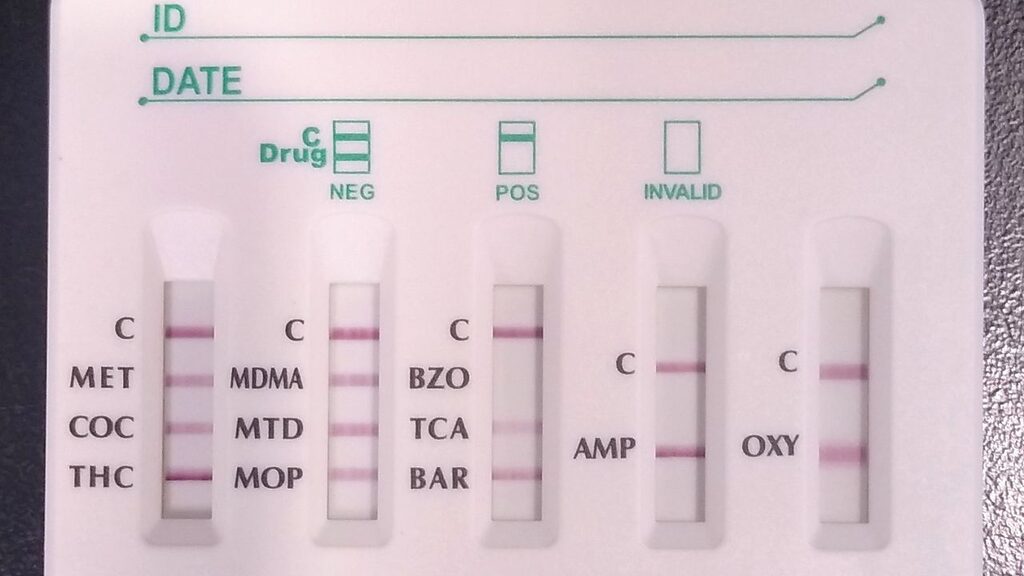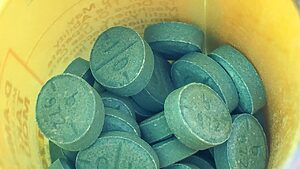Cocaine is a highly addictive stimulant drug that produces intense but short-lived effects of euphoria, increased energy, and talkativeness. It is commonly abused for its powerful high, but this “high” comes at a steep cost. Cocaine use can quickly lead to addiction and a host of severe long-term health consequences. So how long do the effects of cocaine last, and how long does cocaine remain detectable in the body after use?

What is Cocaine?
Cocaine is a white, powdery substance that is derived from the leaves of the coca plant native to South America. On the street, it is known by names like coke, blow, powder, or snow. Cocaine is most commonly snorted, but it can also be injected or smoked in the form of crack cocaine. Cocaine is classified as a Schedule II controlled substance by the DEA, meaning it has some limited medical use as a local anesthetic but also has a high potential for abuse and addiction. Possession of cocaine is illegal in the US.
How Does Cocaine Affect the Body and Brain?
When cocaine is used, it enters the bloodstream and quickly crosses the blood-brain barrier. In the brain, cocaine increases the activity of the neurotransmitters dopamine, serotonin, and norepinephrine. By strongly activating the brain’s reward circuit, cocaine produces a powerful surge of euphoria, energy, confidence and alertness. A cocaine high begins almost immediately after use and lasts anywhere from 5 to 30 minutes.
However, as the high wears off, a “crash” occurs where the user experiences the opposite effects – depression, irritability, anxiety and intense cravings for more of the drug. Repeated use of cocaine to avoid the crash and maintain the high leads to a binge pattern of abuse that can quickly spiral into addiction.
Additionally, cocaine constricts blood vessels, raises body temperature, heart rate and blood pressure, and reduces appetite. It places immense strain on the cardiovascular system. Cocaine overdose can occur suddenly and may result in heart attack, stroke, seizures or sudden death.
How Long Does Cocaine Stay in Your System?
Cocaine has a relatively short half-life of about 1 hour, meaning this is the amount of time it takes for half of the drug to be eliminated from the bloodstream. However, drug tests can detect cocaine and its metabolites for much longer after last use:
- Blood: up to 2 days
- Urine: up to 4 days
- Saliva: up to 2 days
- Hair: up to 90 days or more
A variety of factors influence how long cocaine remains detectable by drug screens, such as:
- Frequency of use: In chronic, heavy cocaine users, the drug may be detectable for longer periods.
- Dosage: Higher doses of cocaine can cause it to be detectable for longer.
- Individual metabolism: People with faster metabolisms process and eliminate cocaine from their bodies more quickly.
- Use of other substances: Combining cocaine with alcohol or other drugs can delay its metabolism.
- Hydration: Dehydration can cause higher concentrations of cocaine metabolites in urine and saliva.
Health Risks of Cocaine Abuse
Cocaine is a highly dangerous illegal drug. In the short-term, cocaine use can cause dilated pupils, restlessness, irritability, erratic behavior, and paranoia. Chronic cocaine abuse presents severe long-term health risks:
- Damage to heart, lungs, liver and kidneys
- Brain damage and cognitive impairment
- Malnutrition and weight loss
- Nasal damage and frequent nosebleeds
- Sexual dysfunction
- Severe depression and suicidal thoughts
- High risk of fatal overdose
Cocaine and alcohol are frequently used together, and this combination is especially hazardous. When cocaine and alcohol mix in the body, they create a toxic byproduct called cocaethylene which intensifies the effects on the heart and substantially increases the risk of sudden death.

Addiction Treatment at Texas Recovery Centers
If you or someone you love is battling cocaine addiction, seeking professional treatment is crucial for preventing devastating health consequences and reclaiming your life from addiction. Texas Recovery Centers offer comprehensive, evidence-based cocaine addiction treatment delivered by experienced addiction specialists.
Our cocaine rehab programs include:
- Medically-supervised cocaine detox
- Residential and outpatient treatment options
- Individual, group and family therapy
- 12-step and SMART Recovery groups
- Dual diagnosis treatment for co-occurring mental health disorders
- Medication-assisted treatment when appropriate
- Aftercare planning and relapse prevention
At Texas Recovery Centers, you’ll have the expert support, personalized attention, and full continuum of care necessary to help you find lasting freedom from cocaine addiction. We are in-network with most major insurance plans and also offer affordable self-pay rates.
Get Help Today
Don’t spend one more day trapped in the cycle of cocaine addiction. Call Texas Recovery Centers now at 888-354-2194 or visit us online to learn more about our life-changing cocaine addiction treatment programs. Our caring admissions navigators are available 24/7, ready to answer your questions, verify your insurance, and help you take the first step on your recovery journey. A healthy, drug-free future is within reach at Texas Recovery Centers.












